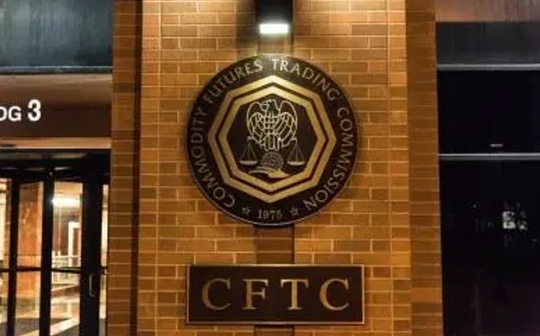
In recent years, with the rapid development of the cryptocurrency market and continuous advancements in financial innovation, regulatory agencies have been actively adjusting their policy frameworks to adapt to these changes. As one of the key financial regulatory bodies in the United States, the CFTC is committed to formulating a new policy on tokenized collateral. According to informed sources, the policy is expected to be officially released in early 2024, aiming to provide clear regulatory guidance for the use of digital assets such as stablecoins in the derivatives market. This move not only reflects the CFTC's emphasis on emerging financial technologies but also marks a significant step forward in U.S. cryptocurrency regulation.
Policy Background and Congressional Developments
The U.S. Congress has long been exploring ways to expand the CFTC's direct jurisdiction over the cryptocurrency spot market. Although relevant legislative proposals have not yet been finalized, bipartisan consensus on strengthening digital asset regulation is growing. The CFTC's development of a tokenized collateral policy can be seen as a proactive response to this trend. The core objective of the policy is to promote financial innovation and provide more comprehensive investor protection while ensuring market stability.
Policy Content and Pilot Program
According to disclosed information, the tokenized collateral policy will allow the use of stablecoins as an acceptable form of collateral in the derivatives market. Due to their relatively stable prices, stablecoins are considered an ideal collateral option. After the policy is implemented, pilot programs may first be conducted at U.S. clearinghouses to ensure feasibility and security. The pilot phase will focus on collateral liquidity, risk management, and operational efficiency, accumulating experience for subsequent full-scale implementation.
Regulatory Requirements and Information Disclosure
To ensure market transparency and stability, the CFTC plans to implement stricter regulatory measures in the policy. Specifically, market participants will be required to disclose more key information, including but not limited to position sizes, identities of large traders, trading volume data, and detailed reports on operational incidents. These requirements aim to help regulators promptly identify potential risks and prevent market manipulation and systemic risks. For example, disclosing position sizes will help monitor market concentration, while detailed reports on operational incidents will ensure swift responses to technical failures or security events.
Market Impact and Industry Outlook
The introduction of the tokenized collateral policy is expected to have a profound impact on the cryptocurrency market. On one hand, it provides institutional investors with clearer pathways for participation, potentially attracting more capital into the derivatives market. On the other hand, by incorporating stablecoins into the formal financial system, the policy is expected to enhance the legitimacy and recognition of digital assets. However, the industry also faces challenges, such as balancing innovation and regulation, ensuring technological security, and addressing potential market volatility. The CFTC stated that it will solicit broad industry feedback before the official release of the policy to ensure its scientific rigor and practicality.
Conclusion
The CFTC's development of a tokenized collateral policy is a significant move by U.S. financial regulators to adapt to the digital era. The policy not only introduces new forms of collateral to the derivatives market but also lays the foundation for the long-term healthy development of the market through enhanced information disclosure and regulatory requirements. With the formal introduction of the policy early next year, the global cryptocurrency market may usher in new development opportunities, and the CFTC's actions may also serve as a reference for regulatory agencies in other countries. In the future, as pilot programs advance and policies are refined, tokenized collateral is expected to become an indispensable part of the financial ecosystem.
















